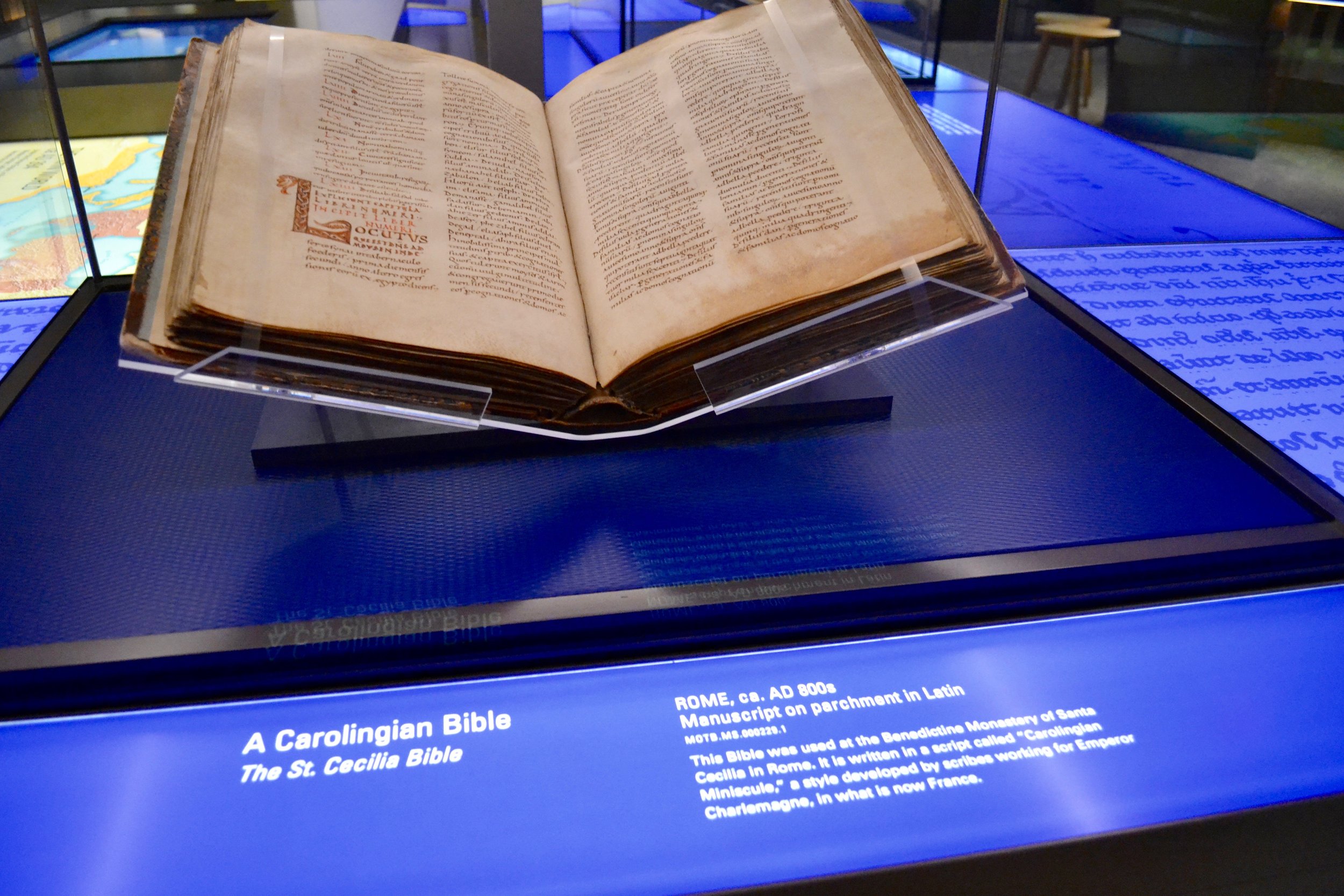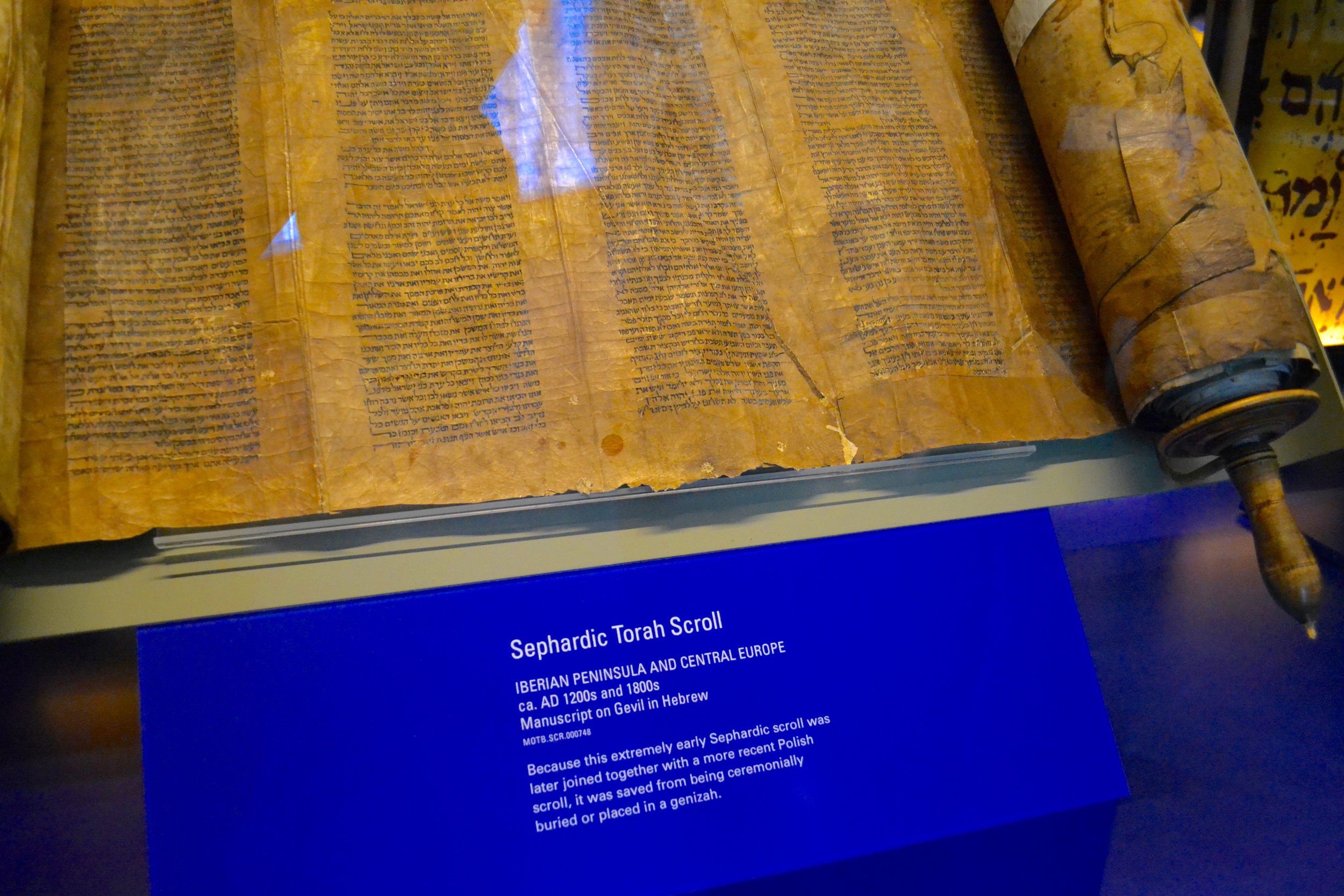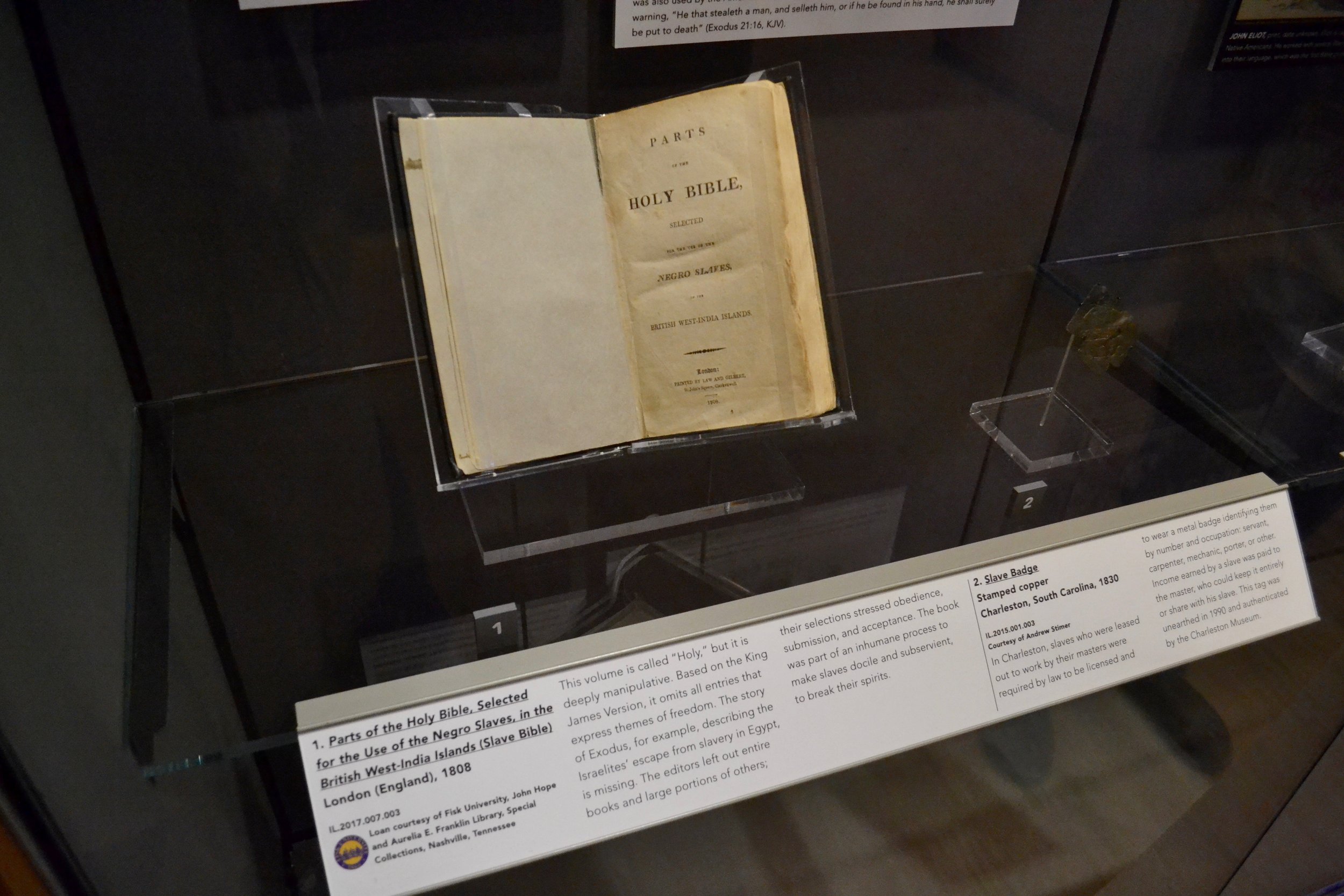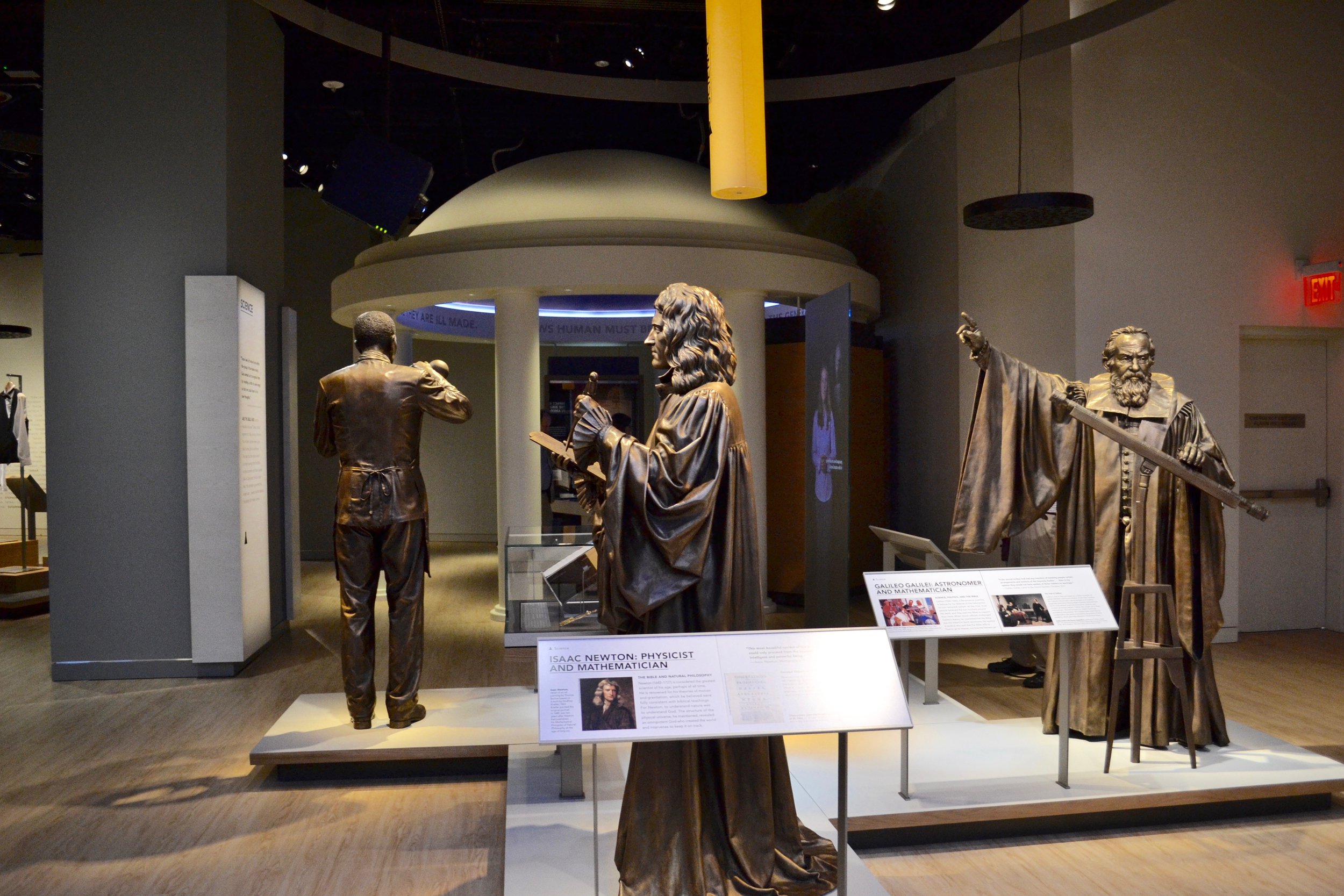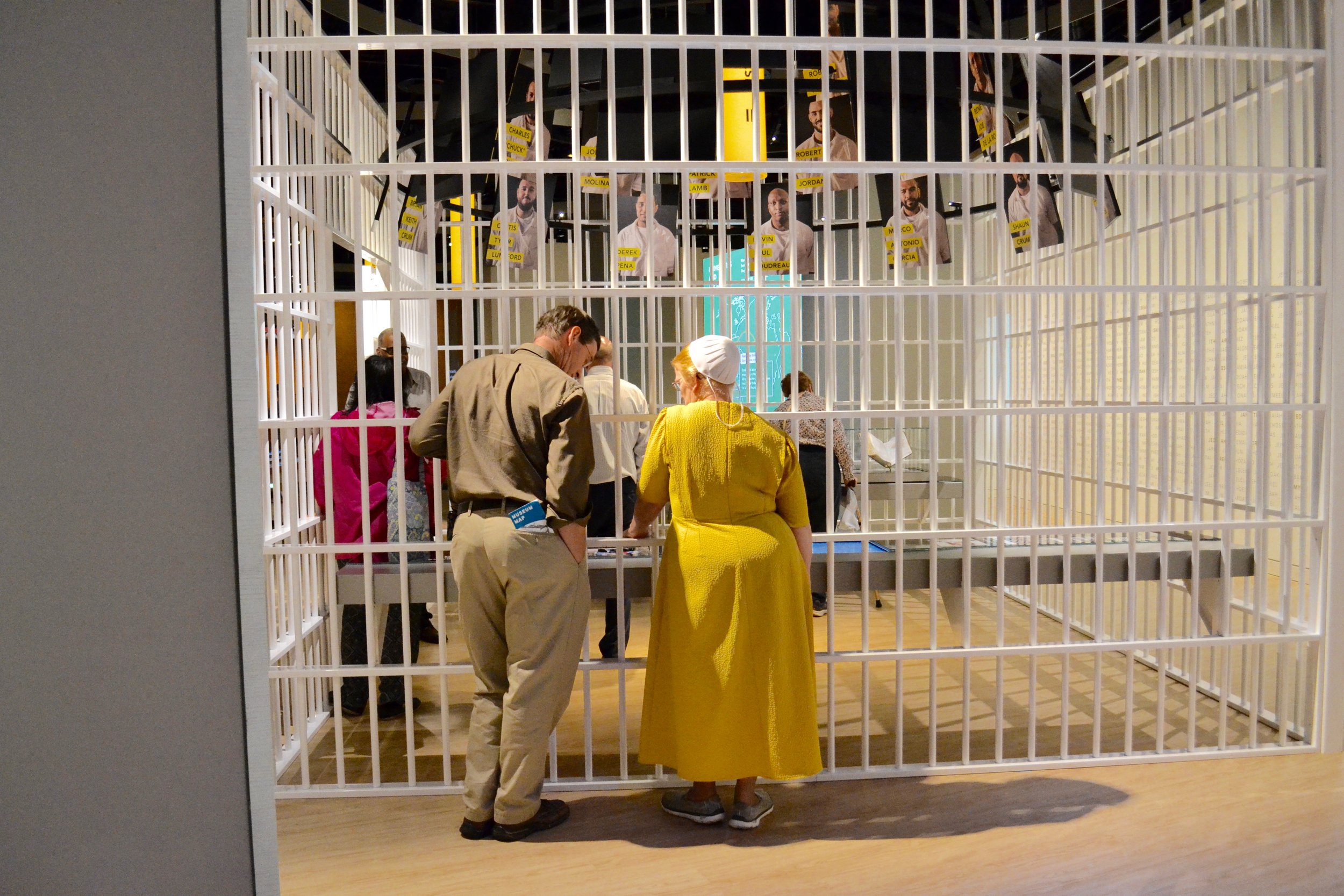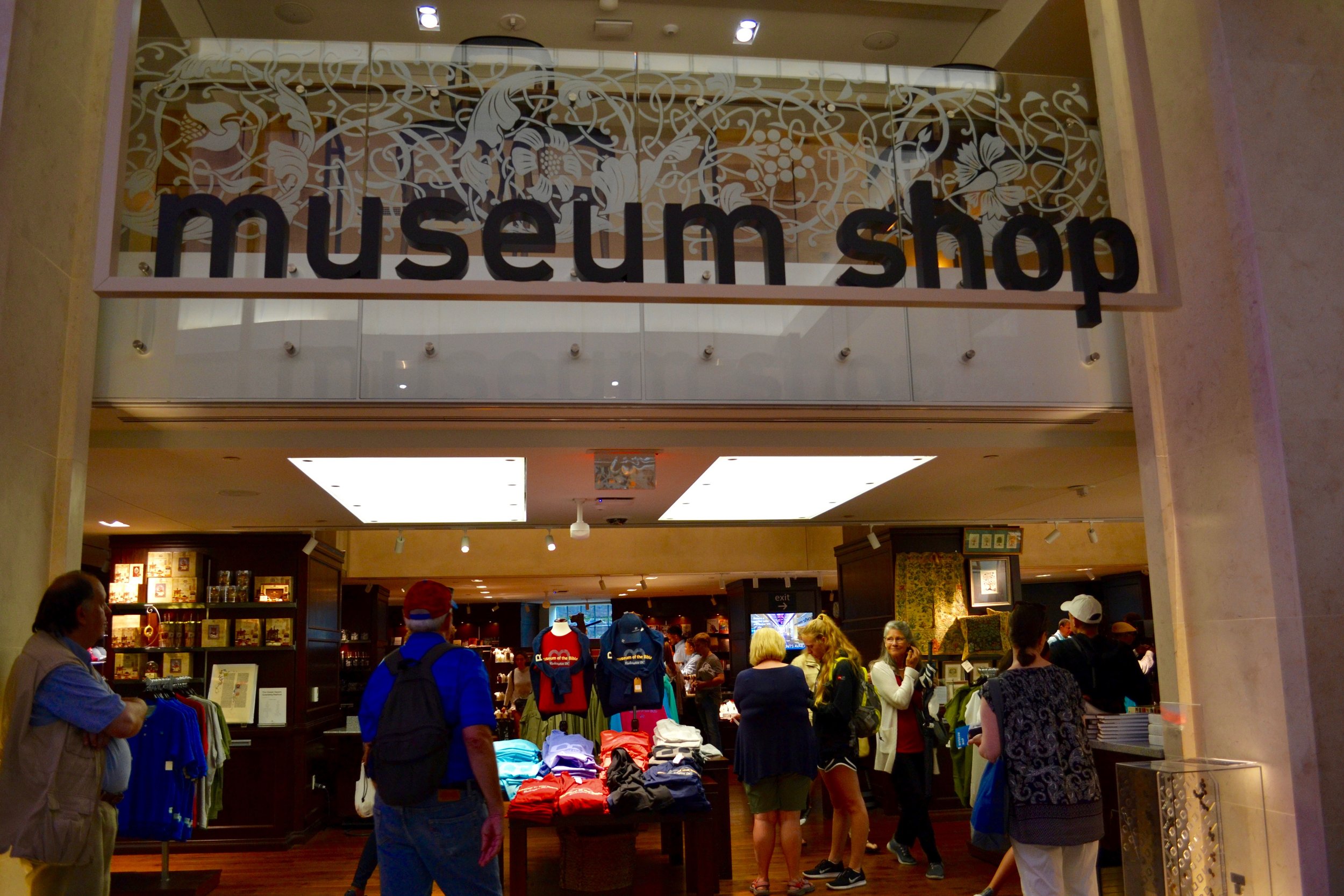The Museum of the Bible's Exhibit On The Shroud Of Turin Is All About Faith
Set in a Washington, DC is a place holding 4,000 years of unique and rare Bible era artifacts with six floors of deep Bible history and a cafeteria with Bible era food. The Museum of the Bible continues to steadily receive visitors from all over the world. Millions of people have crossed the threshold of the museum seeing exhibits and visiting interactive areas.
Describing the museum in one word- engaging comes to mind. From the time you enter, to the time you leave, you will be engaged. From each exhibit, to the Manna restaurant at the top floor of the museum, or the Milk and Honey Café midlevel you will be engaged.
The Museum of the Bible, Washington, DC
The museum started as a thought, which morphed into a dream, then morphed into a vision, and finally it became a reality in November 2017. Because the museum did not receive any U.S. federal funding for its construction, it was built and totally paid for from private donations- from $10 to $100,000 donations. The museum was built by regular people who are passionate about 1 book: The Bible.
The mission of the museum is to help all people engage with the Bible. It’s not about one tradition or one domination for the museum. Recognizing that there are many traditions globally that love the Bible, the museum understands that it is a book that’s a part of millions of lives and their respective tradition.
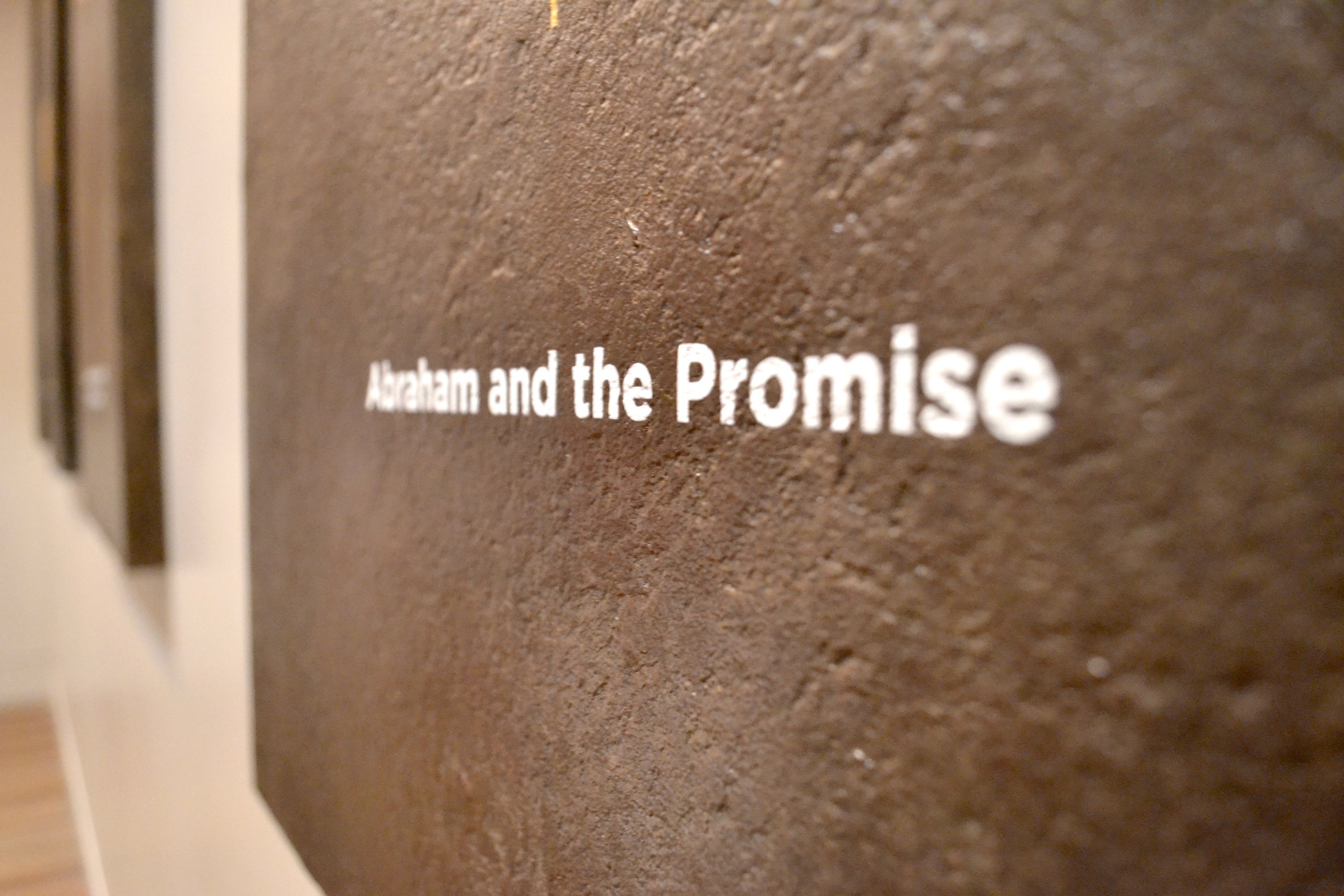
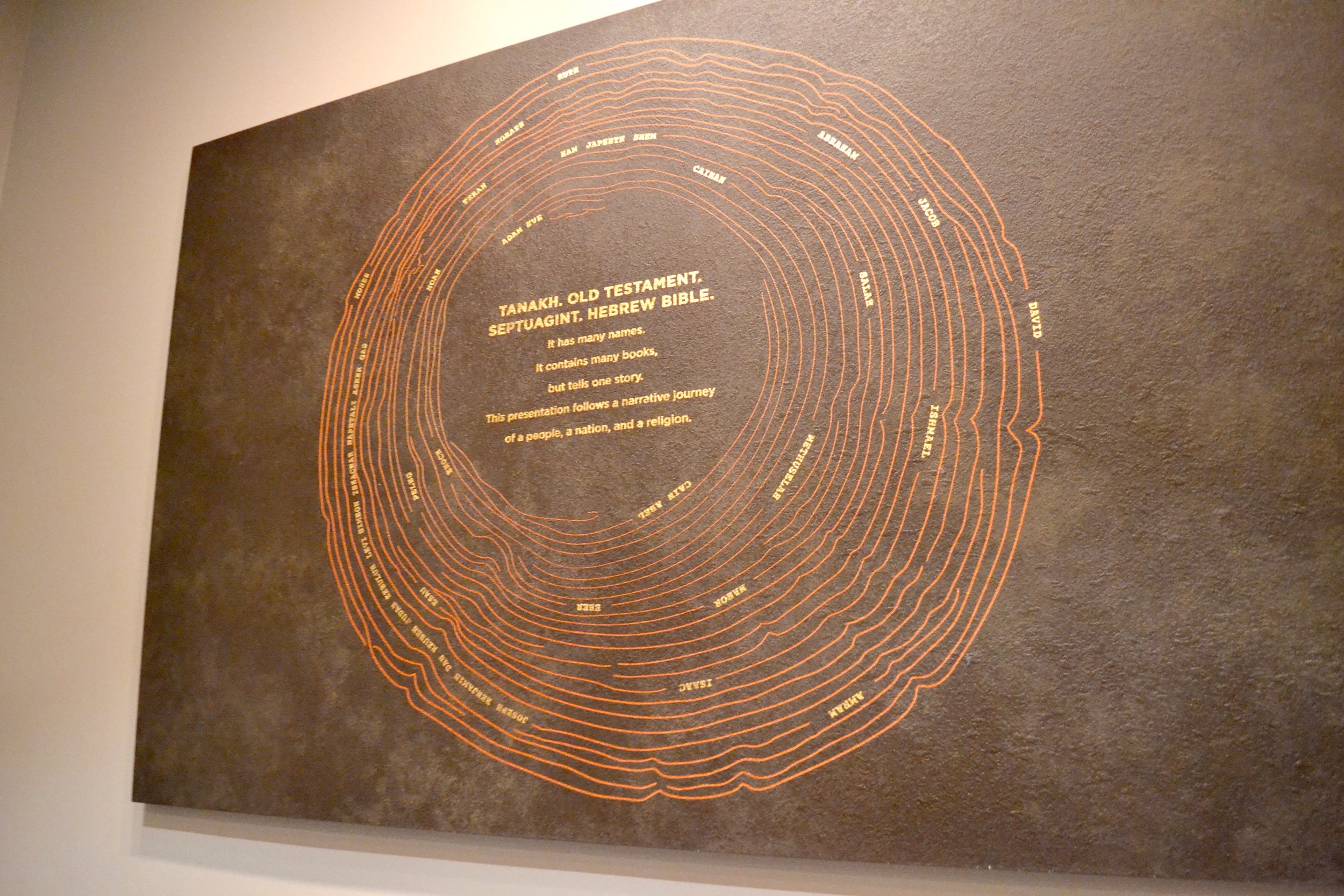
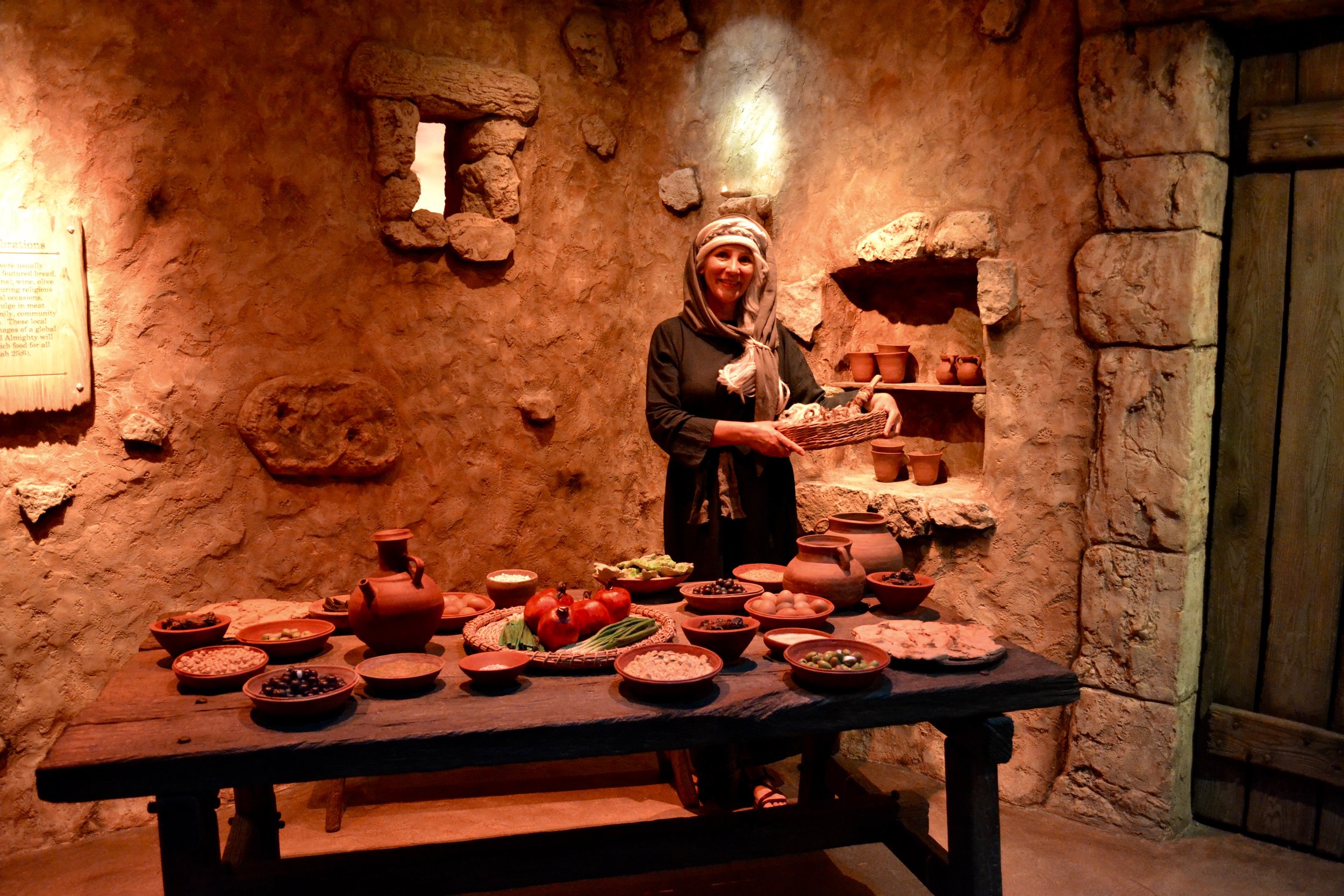
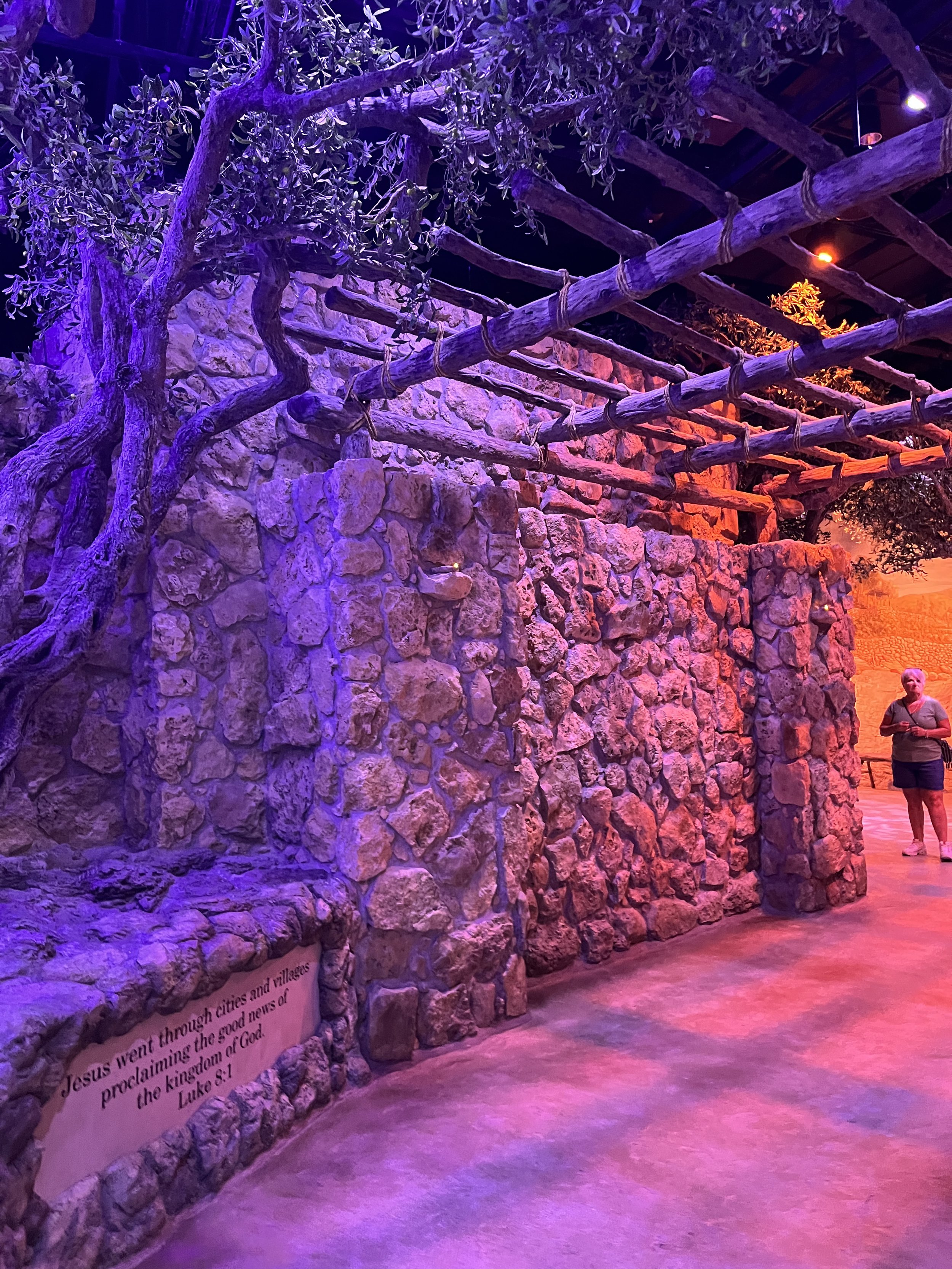
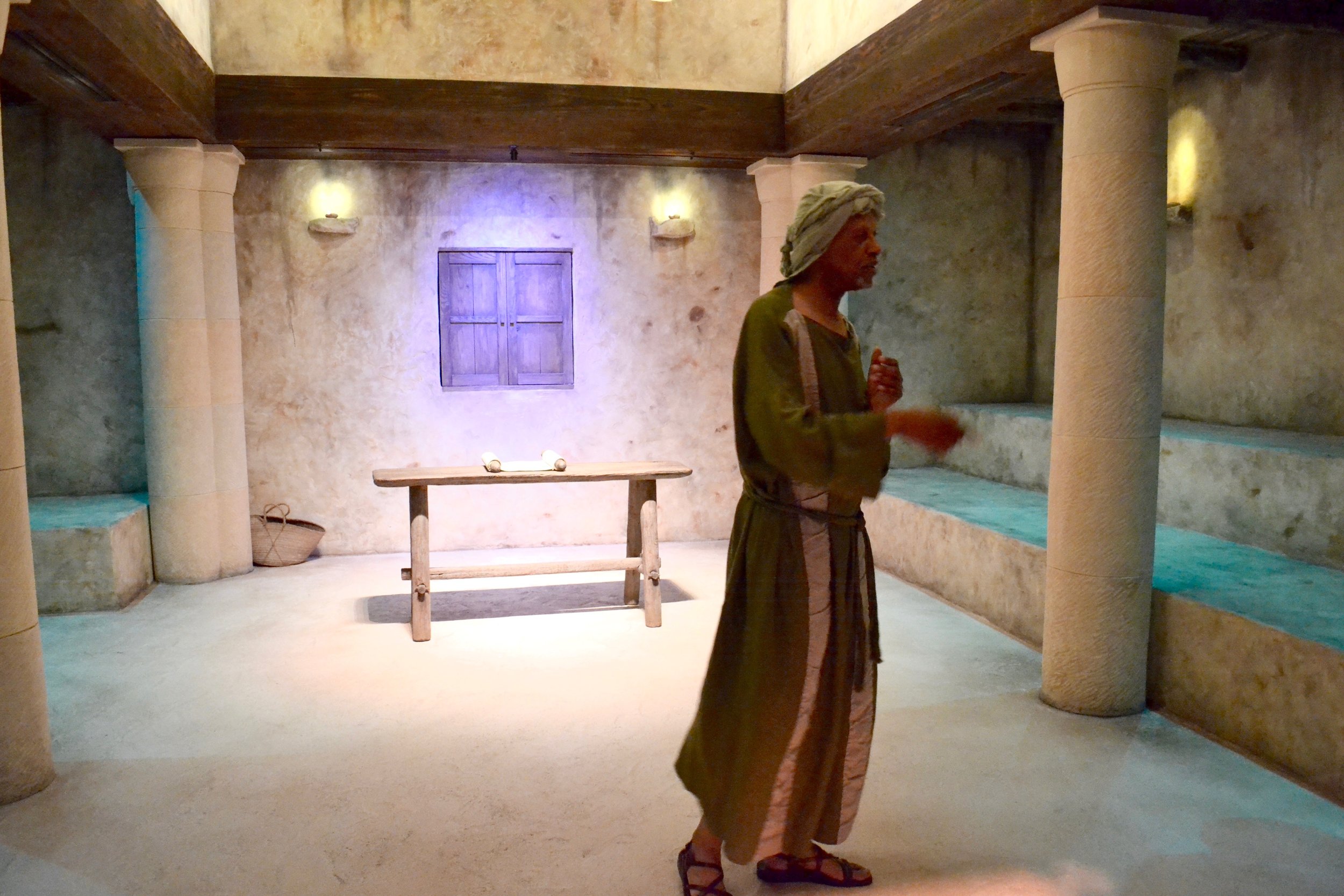
When you arrive, where do you start? Seele, with the advice of the museum started on the 3rd floor. There you’ll find engagement through the theme: “Stories of the Bible.” There you’ll work through stories of the Hebrew Bible in a 30-minute Hebrew Bible Experience, as well as visit the World of Jesus of Nazareth and see an 11-minute detailed video in the New Testament Theater, a surround sound theater with a semi- circular screen detailing Jesus and the 12 Apostles.
Manna Restaurant dish
We then jumped up to the 6th floor to the Manna Restaurant by Todd Gray. There, you’ll find Biblical era/ Mediterranean food. You can’t go wrong with the hummus and pita bread. Also, on the 6th floor, you’ll find a promenade detailing the beautiful DC skyline, and you can take a walk in the Biblical Garden.
Shroud of Turin exhibit
From there, we made a stop on the 5th floor, which has rotating exhibits. The current exhibit on is “Mystery and Faith: The Shroud of Turin. At no extra cost, the exhibit unpacks and goes into detail about what many believe to be the cloth that Jesus’ body was wrapped in, in the Tomb. Today the Shroud is located at the Cathedral of St. John the Baptist in Turin, Italy where it has been for 400 years. Bearing the image of a naked crucified man, it is meaningful to many.
The exhibition is an opportunity for visitors to learn about how the Shroud mirrors the Gospels. With five sections and eight interactive set ups, people will see how it impacts faith. While the Catholic and Protestant churches haven’t officially named the Shroud as Jesus,’ Pope John Paul II in 1998 noted that it allows people to think and take in the nature of human suffering, and God’s love for humanity.”
The 4th floor details “History of the Bible,” which features more than 600 artifacts and media programs. Again, you won’t be bored here at all. You can do the Drive Thru History 15-mintue theatre first or last- we did it last. You’ll encounter a section called Illuminations, which opens your eyes to every Bible that has been translated in languages around the world. But you’ll also see languages in which Bible translations are currently in progress; and languages in which translation has yet to begun. From there, you’ll engage with these sections: In the Beginning, The Written Tradition, Ta Biblia, Translating the Bible, Revolutionary Words, The King James Bible, and Bibles for Everyone. You’ll see the Codex Valmadonna I, an Ashkenazic Scroll, the Gutenberg Bible Fragment, the Luther Old Testament, and the 1st Edition of the King James Bible.
Floor 2 is all about the “Impact of the Bible.” There you’ll discover where you can discover the Bible’s global influence in diverse areas like music, fashion and government, and its significant impact on American culture.
Floor 1 is the “Main Floor” that has a 140-foot digital ceiling, an orientation wall, and the long-term Vatican Museums and Vatical Library exhibition.
Why Washington, DC you ask to be the hosting city for the Museum of the Bible? Well, because the museum put it to a survey. “Three cities were in the running to put the museum, Dallas, NYC, and DC. When we did a survey, DC was the place people were most likely to visit to see a Museum of the Bible and thus the search began,” said Danielle.
The Museum of the Bible is a must see, especially if you practice Christianity. There you’ll be transported back to Old Testament stories, as well as New Testament ones through engaging exhibits, theaters, and hands on augmented reality. And, you can’t go wrong because Washington, DC is a city full of museums, so why not make a point to stop into the Museum of the Bible, grab some Mediterranean food and browse. Trust us, you won’t be disappointed.






